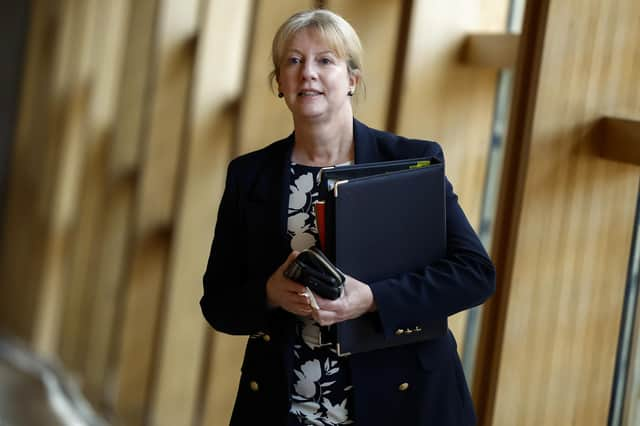Shona Robison must act to tackle Scotland’s housing crisis - David Alexander


A major issue which should form part of Ms Robison’s deliberations must be housing. With Argyll and Bute, Edinburgh, and now Glasgow all declaring a housing emergency it is clear that the sector is facing major challenges which require immediate action.
But announcing a housing emergency is not the solution – it is simply the first stage in any attempt to provide an answer to the complex and varied problems the housing sector faces in Scotland.
Advertisement
Hide AdAdvertisement
Hide AdThere must be a broad range of initiatives to encourage more housebuilding in the private sector, a substantial increase in the number of social houses being built, support for the private rented sector (PRS) at a time of unprecedented demand, and greater financial incentives to first-time buyers and homeowners through a revision of the current land and buildings transaction tax (LBTT).
The scale of the problem can be seen in the latest statistics. New housebuilding all sector starts in the financial year of 2022-23 were at 18,890 while the figure for the second quarter of this year was just 4,268 which is a reduction of 25.5 per cent on the same quarter in 2022.
We need to create an environment in which housebuilding companies are actively encouraged to build in Scotland and increase the number of homes they develop. While the latest private sector housebuilding starts in 2022-23 are broadly in line with the previous year, they are still 13.9 per cent lower than the pre-pandemic year of 2019-20. We need to encourage more housebuilding in the private sector to keep up with demand and this would also ease rising house prices.
Equally, the number of homes being built in the social housing sector needs to be increased by tens of thousands a year for at least the next decade. There were 607,000 social housing properties in 2007 when the current government came to power and by 2020 there were 608,000. Clearly supply has not kept up with demand for a very long time and this needs to be addressed immediately. New housebuilding starts across all social sector housing in 2022-23 were 4,026 which is their lowest level since 2014-15.
Greater support and encouragement for the private rented sector is equally essential if the current housing emergencies in our two largest cities are to be tackled. Recognition that the PRS is a vital component of the overall housing mix is essential if we are to resolve the current problems facing the sector.
There must also be greater encouragement for homebuyers through matching with England the price at which first-time buyers can purchase a home. Also, by standardising the rate of LBTT to match the rest of the UK this would stimulate the Scottish market at a time when it is flattening.
First-time buyers in Scotland pay LBTT from £175,000 compared to £425,000 in England and Wales. Matching the rate south of the Border would stimulate more people into the homeowning market. The 10 per cent rate of property tax is charged from £325,001 in Scotland while this rate isn’t charged in England until properties are worth more than £925,000 which is a clear disadvantage for Scots.
Politicians always talk of fairness, and that those with the broadest shoulders should bear the greatest burden, but we can see that taxes in Scotland increasingly target those who would not traditionally be regarded as wealthy and property taxes unfairly hit first-time buyers and homeowners harder than in the rest of the UK.
Advertisement
Hide AdAdvertisement
Hide AdMany people can afford to buy properties worth £325,001 yet would never regard themselves as wealthy. We now have a remarkably high burden of property taxation being placed on the shoulders of middle earners which includes teachers, nurses, office workers and others.
While no-one doubts that this will be a tricky Budget it will only be by resolving many of the serious issues in Scotland’s housing sector that we will take the first steps in building growth in the economy and producing a more effective and equitable society.
David Alexander is CEO of DJ Alexander Scotland Ltd
Comments
Want to join the conversation? Please or to comment on this article.